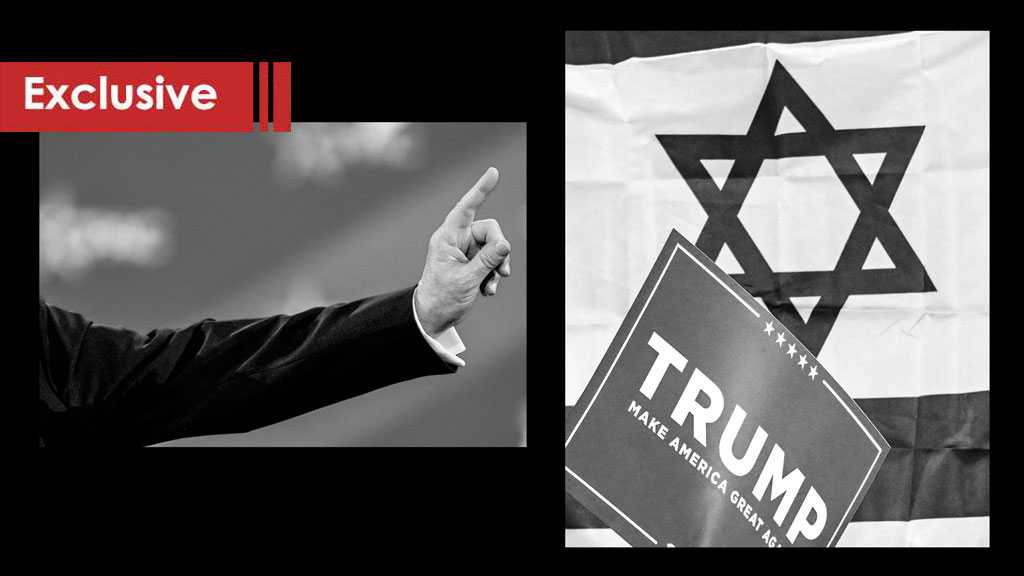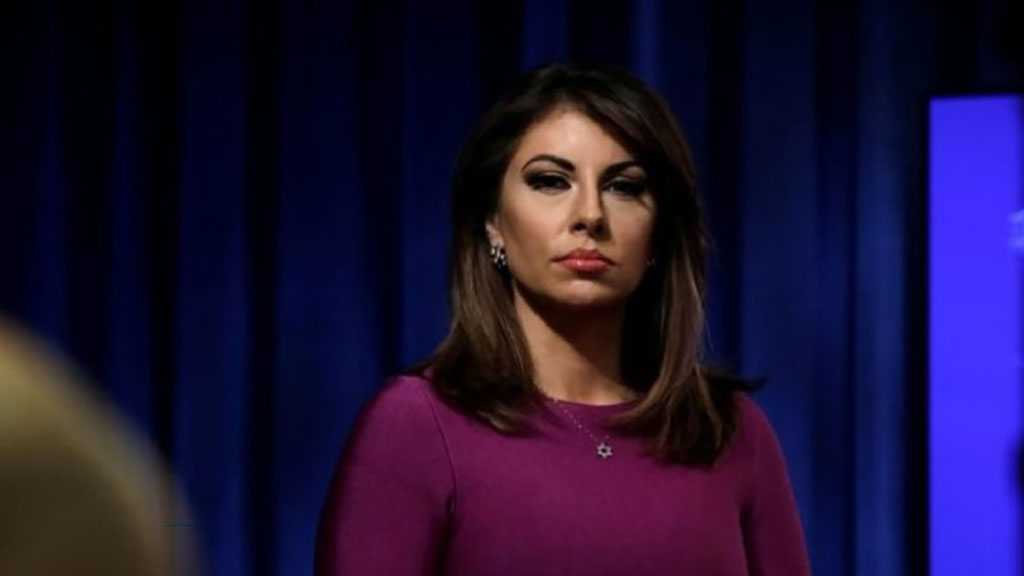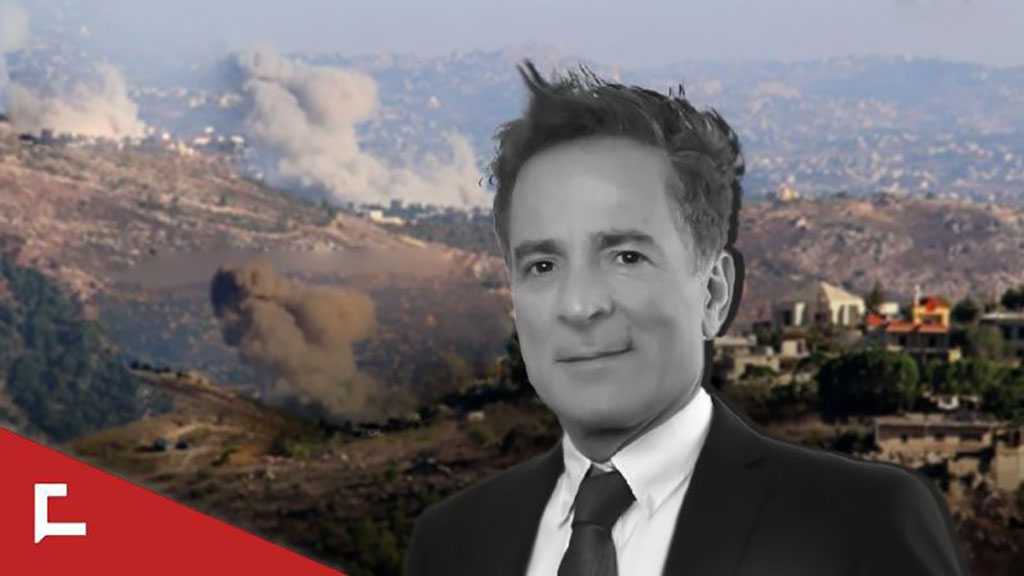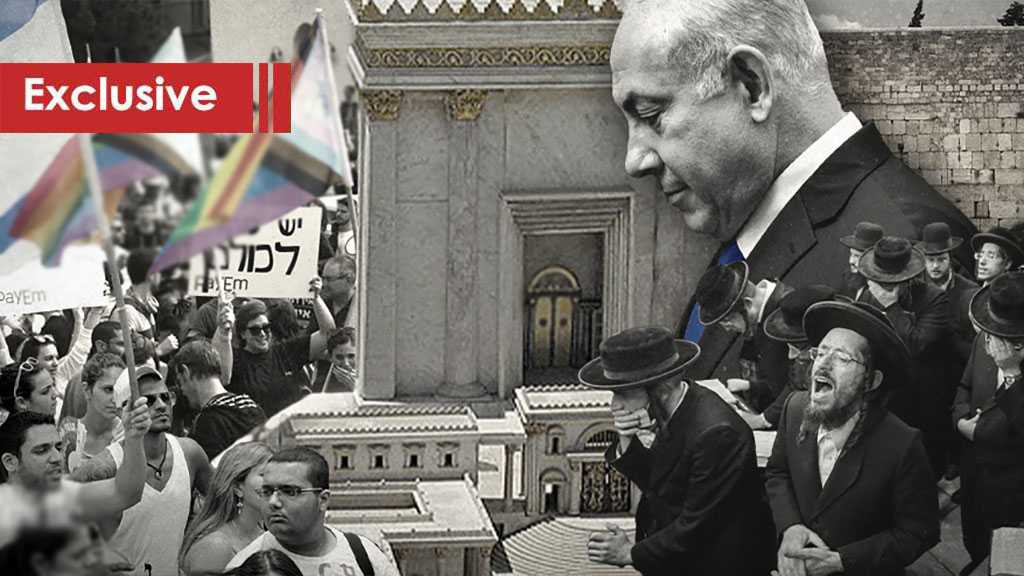
Zasypkin to al-Ahed: The ’Israeli’ Raid on Lebanese in Quneitra A Dangerous Attack
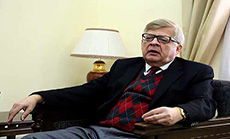
Fatima Salameh
While too many states are tilting towards changing their positions from a number of affairs and causes in the region, Moscow is swimming against the Western tide and seems stanch when it comes to its resolutions on a batch of dossiers, starting with Syria, passing by Ukraine, and reaching Lebanon. At the time when some countries are leading a cosmic war on Syria, Russia is paving the way for meetings to be held end of January on its territories to reach a political solution that will end the crisis which has been blazing since almost four years. Russia's Ambassador to Lebanon, Alexander Zasypkin, told al-Ahed news site that he expected a salient outcome of the aforementioned meetings. In his opinion, the encounter may be the start of a serious dialogue and of an exchange of ideas about the Syrian future to reach the adequate solutions that would help Syrians overcome the crisis.
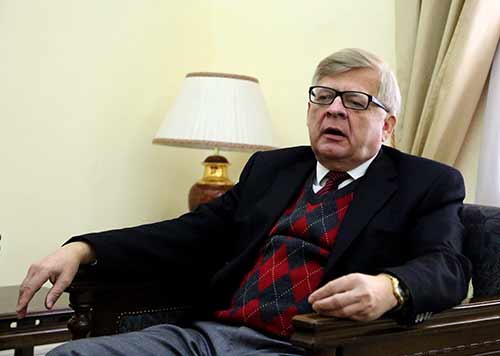
According to the envoy, Russia sternly condemns what satirical French weekly Charlie Hebdo published. For Moscow, insulting Prophet Mohammad (PBUH) is a deplorable act that tampers with the feelings of millions of Muslims around the world. Accordingly, Russia cannot stand in solidarity with "Je suis Charlie" motto because the symbols of provocation cannot be the victims of terrorism.
Within the context of the Russian-US relations, Zasypkin maintains that Washington has made of Moscow a target to wage a war, and that what happened in Ukraine is evidence on this. The oil prices drop clarifies more the picture. It is an American political game to downplay Russia, something that is not going to happen.
Locally, Russia places the "Israeli" raid on Lebanese resistance men in Qoneitra within the frame of a condemnable dangerous attack. Moreover, Russia supports the measures of the security forces to fight terrorism. Here, the Ambassador reveals that his country is about to offer Russian military equipment to the Lebanese army and security forces soon.
The content of the interview:
Let us start from the latest developments that have taken place. What is Russia's position from the "Israeli" raid that has targeted a Hizbullah convoy in Qoneitra?
Russia places what happened within the frame of a condemnable dangerous attack, especially that it is clear that what took place will not remain without response from the Resistance. And we, through this position, do not want any escalation so that the confrontation should not be widened. The Syrian conflict is still underway, and we are exerting efforts to more to a political settlement in the country. This is why any extension of what happened does not serve the interest of the peaceful solution and the cease of the conflict in Syria.
Your Excellency, in your opinion, what are the connotations of the attack? Doesn't it confirm that there is a direct "Israeli" cover for the work of the terrorist groups in Syria?
I am sorry I don't have any information other than what I have just said.
Do you believe that we are about to witness a quality escalation in the region that might lead to a change of the rules of the game?
During the past four years, we witnessed a deterioration of the situation in the region and a proliferation of extremism and terrorism, in addition to the advent of terrorists from all over the world to Syria to fight the legitimate regime. This means that we are not before any rules of any game but before a war. Therefore, we see that changing the rules of the game is only feasible in case we managed to make progress in terms of the political settlement in the country.
On the Syrian dossier, there will be meetings in Moscow among the Syrian parties end of January. Who has informed you of their attendance so far and who refused to partake in the talks?
As it has become known, Russia has invited eminent figures days ago and it is in touch with them to finalize all arrangements. Till now, we cannot tell who will attend and who will not. What is important to us is our evaluation of the huge importance of the presence of the regime and the opposition in Moscow as well as the chance to take advantage of the available opportunities, especially after the Syrian regime accepted to participate in the parleys. Russia underscores the necessity of the opposition's participation in the meetings and of seizing the chance of the authorities' readiness for dialogue. These talks, if kicked off, may be the underpinning of a fruitful dialogue and of an exchange of ideas about the Syrian future and about the adequate solutions that would help the Syrians.
Are you pinning high hopes on these meetings?
There is a long way ahead. There isn't a particular goal, and perhaps this requires numerous meetings to reach certain agreements, especially that Russia does not want to interfere in this dialogue; its role is limited to providing logistic help and patronizing these meetings, and this is something principal, because the Russian position, unlike the others, is always against foreign interference in the affairs that should be solved by Syrians alone.
Are the preparations in Russia completed?
For us, the political preparation is simple because Geneva Statement is the base. The logistic preparations, for their part, are not complicated.
It is being said that Russia has drawn a political map for the political solution. Did you draw the points of a political solution?
The points of the solution are a sheer Syrian affair. This is why we are convinced that the international community has the sole mission to help the Syrians create the suitable climate to enhance national dialogue.
In case the opposition does not attend, does Russia think the meeting will have failed?
In any case, we do not think of such meetings as a failure, because the way is long, and of course, the first session will not solve everything. He who thinks he can find an immediate solution is lost in illusions; this is impossible and more of a dream.
How do you look at the insult of Prophet Mohammad (PBUH) by Charlie Hebdo weekly?
Our position is clear in that respect. The Russian state is built upon the principles of coexistence among sects. From this experience, we have mutual respect among everybody. Therefore, any kind of insult of sacred symbols is refused and socially inadmissible. The law of the Russian state considers any insult an attempt to fuel strife, and we know that similar laws do exist in a number of countries and on an international level. But in some states, this law is not enforced as should be. In Russia, it is implemented in a perfect way.
What happened with Charlie Hebdo was said to be similar to September 11 events, meaning that this will entail an international response to the incident that have left casualties. What is your comment on this?
I believe that there is a big difference between September 11 events and this incident, even though September 11 events were not the first where innocent people fell victims. Even before September 11, buildings have been exploded in Russia, something that changed the world public opinion. But the Western media means are in control. The West itself backed the terrorists in Chechen and called them revolutionaries. But September 11 events encouraged the US administration to communicate with the other concerned sides; and we agreed on the necessity of establishing an international coalition against terrorism. The first steps were encouraging, but afterwards, the US policy tilted the other way. This is why we always have doubts in how to combat terrorism. As to what happened in Paris, there has been media hype by political media means in Europe. Russia believes that the symbols of provocation cannot be victims of terrorism. Thus, we cannot stand in solidarity with "Je suis Charlie" motto because this will mean solidarity with those who have gone wrong. In the world, many things that are more important than what happened in Paris are taking place. Normally, what happened tampers with the feelings of millions of Muslims, and to us, the traditional values are built upon the constants of the monotheistic religions; this is the moral basis of our positions.
How do you describe the map of the US-Russian ties?
Since a while, and particularly since the eruption of the crisis in Ukraine, we defined in a crystal-clear way some key points that today tailor the Russian-US and the Russian-Western relations. Since the end of the Cold War, we have been heading towards the world partnership, especially with the Western states in more than a field. We have been launching initiatives and backing projects to build the mutual security system for the Euro-Atlantic region; but we found that as a result of the Cold War, they want to keep on extending and on hegemony and to make Russia bow to their policies. When we started to practice an independent policy since the beginning of 2000, Washington began to increase pressures on Russia by all possible means, including the deployment of NATO. Pressures amounted to the climax during the current juncture against the backdrop of what is happening in Ukraine. They encourage the coup against the elected president in Kiev and afterwards, they declared war against the southeastern regions of the country. In parallel, they ventured into anti-Russia measures in the financial and economic field, and even used the oil weapon.
What is your evaluation to the stage the Ukrainian crisis has reached?
For the past period, Russia has constantly stood by the political settlement of the Ukrainian crisis that is threatening stability in Europe. We have backed all agreements in that respect, including the agreement in Minsk that are considered the base of the cease-fire and reforms in Ukraine. Only days ago, President Vladimir Putin sent a message to his Ukrainian counterpart Petro Poroshenko, hereby enumerating the tangible proposals to implement those agreements, including separation between the armed forces and the withdrawal of heavy weaponry. We also suggested a thorough schedule to bring the agreements into effect. But the response was quick: bombardment was renewed and the Ukrainian forces staged military operations. A bus with innocent people on board was exploded and Russia was directly accused of the blast. The Western states started to take advantage of the attack to accuse Russia,, while what we immediately did was to as for an international probe into the incident.
It is now known that the US has used the oil weapon against Russia. What is your response?
There are many opinions by economists, who say that among the reasons behind the oil prices drop are political ones and not just a market game. This encourages us to make the internal economic decisions while taking into account Russia's huge capacities to deal with the problems resulting from such measures.
How do you describe the economic situation in Russia?
There is no crisis in Russia but economic setbacks do exist, because oil revenues used to cover a considerable part of the budget. This is why we are cutting the budget and working on opening the way to the local private sector and encouraging private initiatives as well as heeding small and medium enterprises. We are convinced that we will overcome these difficulties.
Russia will not change its political path, especially that we know that any concession to the US and the West will lead to new military clampdowns on us. Others do not want dialogue and do not want independent policy. The Americans give instructions to the governors in the European states for instance; Russia cannot imagine to be such a position where it would be receiving orders, because this would be the end of Russia as a state. Economically, we have capacities to find substitutes, internally and externally, through cooperation with a big number of countries around the globe, including Iran and China. The Russian-Chinese cooperation foresees a good future.
What do you think of the new-fangled Cuban-US relations?
What happened proves the failure of the policy of sanctions practiced by the US for decades against Cuba. This is a success for Cuba. It is not strange to hear that the Americans are resorting to esthetical measures in terms of their ties with other countries for anti-Russia purposes. The Americans have determined Russia as a strategic target to wage the war. Building on this, the Americans are maneuvering and improving their relations with the other countries.
Some saw in the US appetite for the opposition meeting in Russia a prelude to a Russian-US deal to solve the Syrian issue. What is your comment on this?
The Russian method in Syria is still the same since the beginning and did not change. We are seeking a political solution. We heard from the Americans a positive stance from the consultations in Moscow and this is fine to us. It actually makes it easier on us. As to the reasons to take such a stance, I have no clue. It is now clear to all that the military option and that toppling the regime are all failed speculations. They are compelled to conduct new maneuvers. We do not know what their considerations are. This is their business. But we are benefitting from this stance.
In Lebanon, what is your evaluation following the tin explosion in Jabal Mohsen? Do you think that Lebanon is at the threshold of the recurrent blasts? Do you have any information in that concern?
I do not have any special information other than those present before the Lebanese security apparatuses. The evaluation of the magnitude of the danger is the same. Russia vehemently supports the security measures that army and security forces are taking to fight corruption nationwide to curb the extension of terrorism from border regions into the Lebanese inside and in some regions where sleeping subversive cells are still quiescent.
What about the offer to provide some Russia military equipment to the Lebanese army and security forces?
We have been seriously discussing this matter with the Lebanese side, and we can say that there are results; but I am not entitled to speak about this dossier. What I can say is that there are practical things that are taking things so that we see tangible results soon.
It has been said that the presidential elections issue was broached with Russians? Is that correct?
We support the election of a president in the nearest time possible and Russia clings to the international agreement over security and stability in Lebanon. The election of a president is factor conducive to this stability. Without a president, the state institutions are in danger. As to the qualities of the new president, it is up to the Lebanese public opinion to determine them and we do not interfere in this matter at all.
